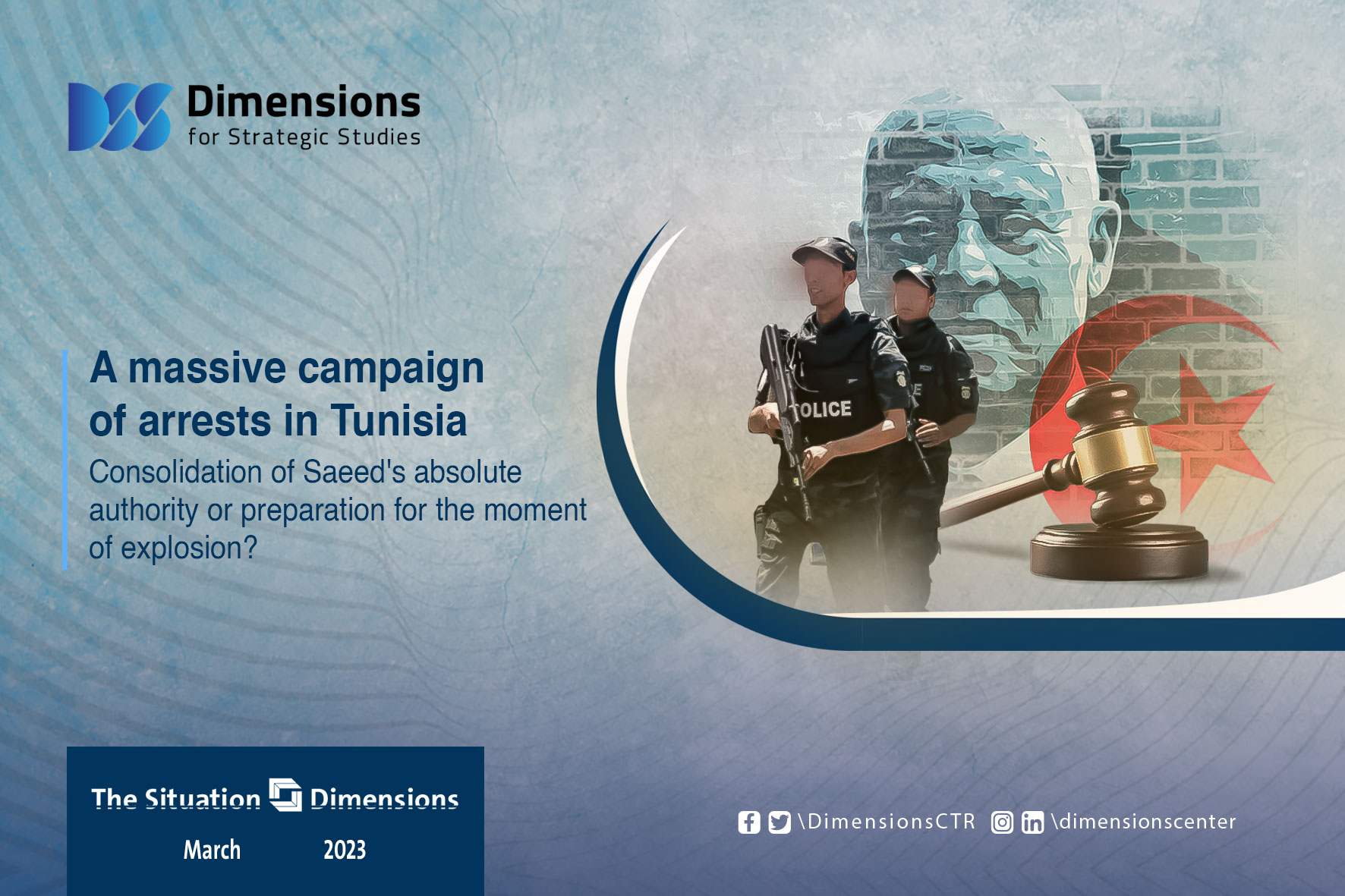
A massive campaign of arrests in Tunisia
2023-03-032037 view
Starting at dawn on Saturday, February 11, 2023, Tunisian security teams carried out a number of important arrests of political opponents and civil society activists. Since then, arrests have persisted, and so far included a large number of first-class political and economic figures.
Among the most prominent detained in the recent campaign is businessman Kamal Al-Taif, who is considered one of the most prominent, if not the most influential businessman in the Tunisian political scene. The list also included - Jawhar bin Mubarak, a professor of constitutional law ; - Ghazi Chawashi, the leader of the « jabhat alkhalass/ Salvation Front » ; - Al-Tayeb Rashid, one of the most important judges in Tunisia in previous years, and the former leader of the Democratic Current Party in Tunisia ; - Abdel Hamid Jelassi, the former leader of the « Harakat Ennahda/Renaissance Movement » ; - Noureddine Al-Behairi, a former Minister of Justice and leader in the Ennahda Movement ; - Noureddine Boutar, director of "Radio Mosaique FM" ; - Zahr Al-Akrami, a former minister ; - Walid Jallad, a former MP ;- Issam Chebbi Secretary General of the Republican Party and many others.
The Tunisian president preempted bringing the detainees to justice by accusing them of conspiring against the internal and external security of the state, and of being terrorists and traitors.
The latest campaign of arrests came about ten days after the announcement of the results of the second round of the legislative elections, as in the first and second rounds of these elections constituted a source of great embarrassment to President Qais Saeed and to the “July 25” track, because the participation rate in them was about 11%, which is the lowest percentage in Tunisia's history, and one of the lowest participation rates in any elections around the world.
The weak participation in the elections showed how fable the alleged support for the president, who bragged about the results of his own victory in the presidential elections in late 2019, in which he seemed to have great popularity, while the legislative elections showed that this popularity had declined to very low levels.
Qais Saeed is on the verge of completing the agreement with the International Monetary Fund ; and this requires taking unpopular measures. This security campaign targeting opponents and non-oppositionists helps him as a cover-up for such measures. Furthermore, it helps him justify the high prices and the loss of basic commodities by accusing the opponents of working within a scheme that targets the authority.
The security campaign included the Labor Union and a number of its regional and sectoral leaders, despite the Union's support for the July 25 measures. It seems that the targeting of the Union takes place for stopping its recent initiative for a solution, which proposes a national dialogue with the opposition, and presents - albeit timidly - an alternative to the eradication path of President Saeed. Moreover, the targeting may frighten trade unionists and push them to limit strikes and stop the union's involvement in political protests and issuing demands.
Although the last two years have witnessed the arrests of a large number of political opponents, this campaign is characterized as being the largest on the one hand, as it includes a wide spectrum of actors, from the Ennahda movement to pillars of the deep state, and from the pro-Saeed left to the opposition right. Therefore, it can be said that the campaign blocks the path to any option for national reconciliation, and leaves the country with the option of Saeed being able to completely eliminate all forms of opposition, or to push the country into an explosion that ends his rule.





